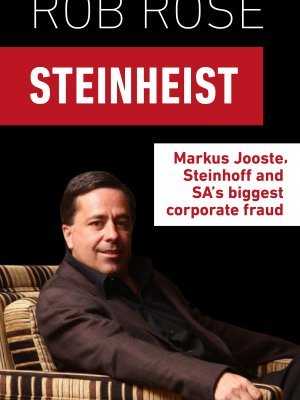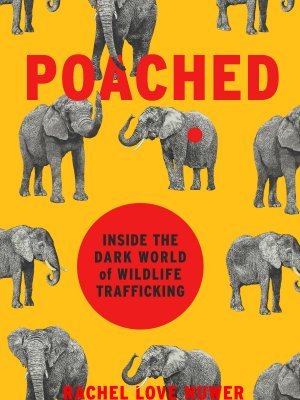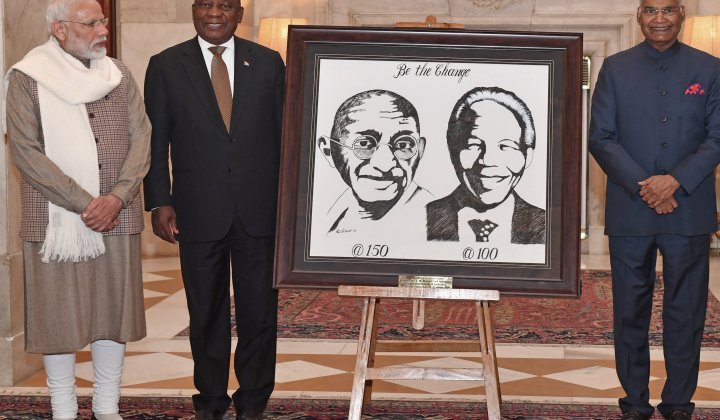Steinheist – Rob Rose – Tafelberg – R295
South Africa has a mixed blessing: any amount of state capture, looting of SOEs and corporate fraud, but a handful of extremely talented journalists and writers to expose it. Financial Mail editor Rob Rose has confirmed his place in the very heart of that group with Steinheist, his excellent investigation into the fraud which wiped out one of the biggest companies on the JSE.
Central to Rose’s compelling narrative are several key questions. How could a company with no less than three accounting PhDs on its board have not spotted the hollowness of Steinhoff’s numbers? How could master dealmaker and local business titan, Christo Wiese, have fallen for the scam, especially after receiving a very clear and accurate warning from a stock market analyst a couple of years earlier? Was the tightly-knit coterie of Afrikaner business people around Steinhoff CEO, Markus Jooste, in on the deal? If not, how come they, too, failed to recognise the string of shady acquisitions for the lies they turned out to be? Most tellingly, when several other stock analysts down the years had seen Steinhoff for what it was and written reports to that effect, where were the company’s auditors?
At the time of writing, Jooste himself has not been arrested, nor has he been charged or appeared in court, although he did testify to a group of Parliamentary Committees, giving little away in the process. Steinheist makes it abundantly clear that almost from the very founding of the company, this Stellenbosch-educated, super-bright accountant was bending the rules, especially with regard to related-party transactions, to his own personal benefit.
That he got away with it for so long puts Jooste alongside Enron’s Ken Lay and Jeff Skilling, WorldCom’s Bernie Ebbers – even Bernie Madoff. What allowed to him do so, as Steinheist confirms, is just as simple: old-fashioned human greed.
Creative Selection – Ken Kocienda – Macmillan – RXXX
What does it take to develop something as complex as an iPhone or a web browser? The answer, according to former Apple software engineer Ken Kocienda, is a complex blend of seven elements: Inspiration, Collaboration, Craft, Diligence, Decisiveness, Taste and Empathy. He calls the blend ‘Creative Selection’, and if you get it right, not only will your product be fundamentally useful, but it will also be elegant, intuitively easy to use and fun.
His book is based on his 15 years at Apple, during which Kocienda worked on both the Safari web browser and the original iPhone under the guidance of Apple’s Senior VP of iOS software, Scott Forstall. Verging on the geeky, he goes into exquisite – or should that be excruciating? – detail about the problems of developing a screen-based touch keyboard, with design variation after variation. Finally, with Forstall’s approval, Kocienda presents his keyboard to Steve Jobs, who gives his approval.
Kocienda is also present when Jobs launches the iPhone in January 2007, and when it finally goes on sale, six months later. He is justifiably proud of having been part of the team which launched a world-changing product.
Perhaps the key to Kocienda’s book – and whether or not you might want to read it – lies in the subtitle: ‘Inside Apple’s design process during the golden age of Steve Jobs.’ You might indeed have a magic formula with seven or however many elements, but unless you have a rare creative genius like Jobs at the helm of your organisation, it may not be worth terribly much. Jobs’ massive influence over everything Apple looms inevitably large over the book. I suspect that if you’re an Apple user or follower – even a fanboy – you’ll enjoy Kocienda’s insights; if not, this may be one to skip.
Blitzscaling – Reid Hoffman & Chris Yeh – HarperCollins UK – R320
With a foreword by no less than Bill Gates, Blitzscaling is an entrepreneur’s handbook that is at once both vitally necessary and deeply scary.
Hoffman is a Silicon Valley legend – one of the original founders of PayPal, then LinkedIn, an angel investor in Facebook, he is now a partner at top-line venture capital firm Greylock Partners. Alongside him is Chris Yeh, also an entrepreneur and a Harvard MBA who held a Baker Scholarship when he was there. Their theory is simply that in the modern software-driven world, unless your start-up has the capacity to grow to ginormous super-quickly, you don’t have much of a hope. Hence the word blitzscaling – you have to be able to scale up at blitzkrieg speed!
Why? Essentially, if you don’t do it, someone else will. What’s more, big-league investors aren’t interested in a mere million or two – they want billions, and you have to be able to deliver those very quickly.
Blitzscaling is methodical, detailed and thorough. It will force you to look very hard at what you are doing or proposing to do. But pay close attention and you may find yourself running and owning the next Facebook, Uber or Airbnb.
Lift As You Rise – Speeches and Thoughts on Leadership – Bonang Mohale – Tracey McDonald Publishers – R270
One of South Africa’s most experienced business leaders, Bonang Mohale is now CEO of Business Leadership SA. It’s a key role, given the often fraught relations between government, the trade unions and big business. Lift As You Rise is Mohale’s personal philosophy, expressed through an assemblage of speeches, pensées and letters of admiration from former colleagues and friends, many of whom have been mentored by Mohale along the way.
He is committed to advancing black excellence in South Africa, as well as ethical and moral leadership, which “is a necessity for South Africa (or any country or any company) to succeed.” He rails against the ‘anti-intellectual’ trend in leadership of the past few years: “We even coined the phrase ‘clever blacks’, as if being clever is a sin.” Very clearly Mohale states that “leadership is about surrounding yourself with people who are substantially better than you so that, together, you can find a better way of doing things.”
It’s a sentiment as old as the hills, but no less true for that. What amazes me is that so few leaders in this country have the courage to speak so accurately and plainly.
Poached – Inside the Dark World of Wildlife Trafficking – Rachel Love Nuwer – Scribe – R402
South Africa’s rhino population is under intense threat, with most poached rhino horns destined for East Asia. But who drives this trade and why? How valuable is it? What chance do we have to save not just rhinos, but also tigers, lions, pangolins, bears and many other species from extinction?
Rachel Love Nuwer, a conservation scientist-turned-journalist, has written for National Geographic and The New York Times, and Poached is her overview of the subject. Much of it details her time in Vietnam and China, because that’s where the action is in terms of consumer demand. Chinese traditional medicine is one of the main problems, ascribing all manner of powerful properties to things like rhino horn (good for lowering fevers, rub it on a grazed knee) and tiger bones (rheumatism, impotence and much more). None of these has any scientific basis in fact, apart from the placebo effect, but bile taken from the gall bladder of a bear certainly does, so the water is already slightly murky. Add the demand for easily available wild meat in the restaurants of places like Hanoi – “Grilled civet, madam? Killed and skinned at the table for you? No? Live cobra, perhaps?” – and the true complexity of the problem emerges.
Nuwer writes skilfully, heart-rendingly when describing some of the creatures she sees, and with great passion. She also makes it clear that there is no easy solution and that a change in habits in East Asia is going to take many years and much hard work, but there is hope.









